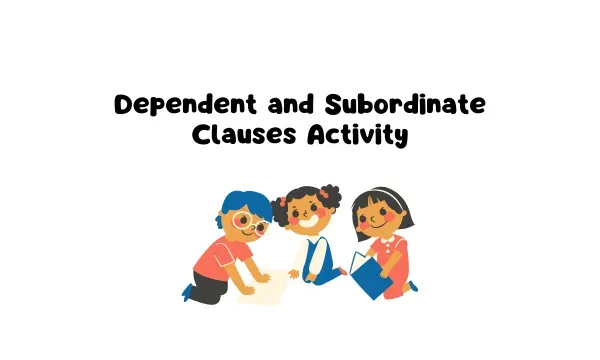Activity: Dependent and Subordinate Clauses
Introduction:
Objective:
In this activity, you will learn about dependent and subordinate clauses, and how they add more information to an independent clause.
Materials:
- Pen or pencil
- Paper
- Examples of sentences with dependent and subordinate clauses
Instructions:
1. Start by reviewing what independent clauses are- these are full sentences that express a complete thought and can stand alone.
Example: I went to the store.
2. Now, let's learn about dependent clauses. A dependent clause is a group of words that cannot stand alone as a sentence and needs an independent clause to complete its meaning.
Example: Although it was raining,
3. Subordinate clauses are a type of dependent clause that start with a conjunction like "because," "if," or "when."
Example: If you study every night,
4. Now, let's practice identifying dependent and subordinate clauses! Look at the examples of sentences and underline the dependent or subordinate clauses.
Example:
The dog barked loudly although no one was around.
Answer: although no one was around
5. Create your own sentence with a dependent clause. Make sure that it cannot stand alone as a complete sentence.
Example: Because he was tired,
6. Create another sentence, but this time, include a subordinate clause. Underline the subordinate clause.
Example: When she finished her homework,
7. Share your sentences with the class and see if you can identify any dependent or subordinate clauses in your classmates' sentences.
Conclusion:
In conclusion, dependent and subordinate clauses are powerful tools for enhancing sentence structure and overall English language proficiency. By understanding the definitions, examples, and practical applications of these clauses, you are now equipped to create complex sentences and effectively communicate your ideas. Whether you're a language learner looking to improve your skills or an educator seeking engaging grammar activities, this activity is a valuable resource for all. Don't hesitate to share your newfound knowledge with others and continue to explore the vast world of English grammar. Happy writing!

